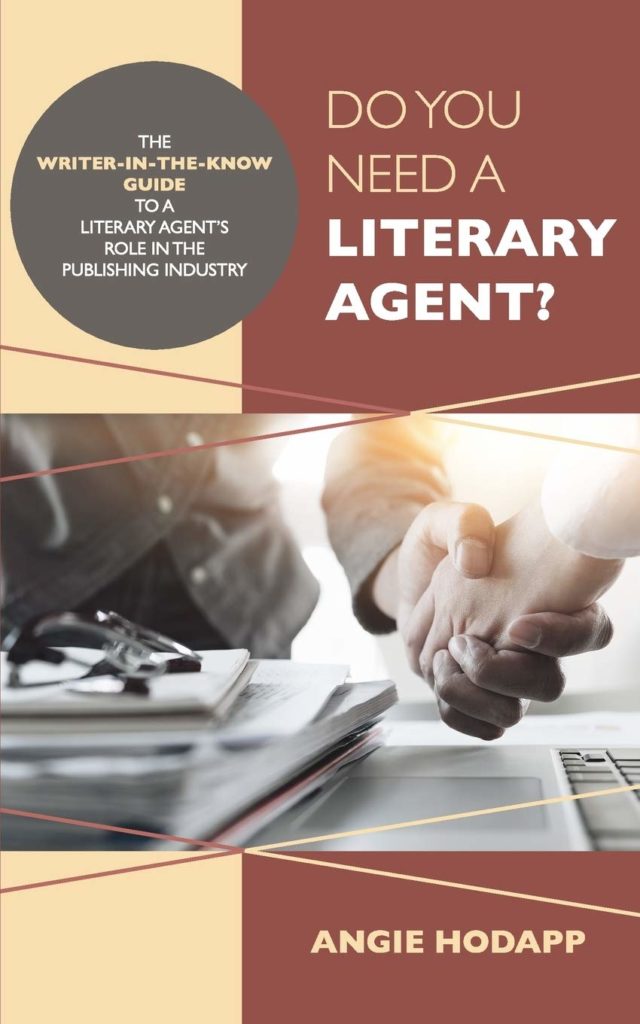You’ve done it: you’ve put in all the hard work it requires to get a literary agent to want to sign you. But what most first-time writers overlook is that “signing” means that actual signatures are involved. You are about to enter into a legally binding contract with this person, often for a very long time. In most cases (not all, we’ll come on to that), you will be required to agree to and sign literary agent contract, retainer, or at the very least, an email or a letter that outlines the terms of your partnership.
1. This is a business arrangement
Wait—doesn’t that seem cold? This is about the literary agent’s love of your manuscript or book proposal, not a business contract, right? I’ll say it again: writing is a business. This is a business arrangement. A literary agent isn’t taking you on just because they love you and your book. That may well be true, but they are taking you on primarily because they think they can sell your book and make a commission. They aren’t doing this for free or out of the kindness of their heart—this is their job. And just like you wouldn’t accept a job without signing a contract, the same is true for a literary agent contract.
2. Get it in writing
Some agencies may not offer contracts. They may just tell you verbally what they plan to do for you. While not ideal, you can move forward without one, but you absolutely need something in writing—a letter or email will suffice. This protects both parties should the relationship go south in future. Some agencies also rely solely upon agency clauses that appear directly in publishing and rights contracts. This is acceptable, but it does not protect you until the literary agent actually sells your work. Many writers and literary agents work together for years before something is sold. Equally, once a literary agent sells your work, they will continue to earn their commission on royalties for the lifetime of the copyright, which can be up to 70 years after your death! Just like you wouldn’t rush into a marriage (the only other legally binding agreement that can last as long,) don’t rush into this. Proceed with due care. And always, always get a written record that acknowledges that both parties agree to the terms. A literary agent relationship is (ideally) for life, not just for Christmas.
3. Carefully check the terms
Read your literary agent contract carefully. Get multiple people, including legal professionals, to read your contract carefully. Print it out, and highlight anything that concerns you. Check out advice from the Authors Guild website. If you see something that you are not happy with, or see something that does not make sense to you, red-line it and send it back to your agent. A literary agent contract has been written by the agency or their lawyers; therefore, the terms will be in their favor. You can ask to change the terms of the contract. Don’t be scared to negotiate, and don’t worry about losing the offer. Any literary agent worth their salt will be happy to negotiate with you if it means that they can sign you. They want you. Therefore, you hold the power. If you see a term you don’t understand or aren’t happy with, it is incumbent on you to ask about it or try to get better terms for yourself.
4. What “Work” will they represent?
You will see a clause outlining what constitutes your “Work”—is it just this project, projects in the future, or projects in perpetuity? List out your work—preferably by its title—and specify whether it just involves this one manuscript, multiple books, an extension of the idea, or universe, or everything you will write from now until the end of time. The advantage of having an “in perpetuity” clause or a rolling arrangement is that it saves you from having to keep signing multiple contracts, but please proceed with caution. If you cannot break the contract easily, then you are effectively granting your agent rights over everything you will ever write. Just like marriage, this relationship can end, and you might want to work with someone else in future. Protect your “Work”; it is your most valuable commodity.
5. Look at the exclusivity clause
Literary agents will typically only want to sign you exclusively, that is, they are asking to offer sole representation. This is important, because occasionally more than one agent can represent you or your Work. An agent does not want to compete with another agent on the same project, nor do they want to work hard on selling it, only for you to take it to another agent. Once the agent has sold your project, it is their commission, even if you go to another agent. The exclusivity clause protects the agent, but it also gives you peace of mind, knowing that your agent is working hard for both of you to make the sale.
6. Check their cut
The standard agent commission is 15% for North America publishing rights. If you notice more or less than this percentage, absolutely question it. Foreign and film rights can vary, usually anywhere between 20% and 30%. Look for information on any “subsidiary rights,” which can include subsequent print editions, international editions, movies, TV, audio, theater, and even amusement parks! Publishing can encompass a wide opportunity for sales, and the more the agent can sell for you, the better for both parties. Just be sure to check their commission and royalties structure against all rights.
7. Understand “best efforts”
“Best efforts” means that the literary agent is going to do everything they can to get you the best deal. This is in both parties’ interests. However, “best efforts” can mean different things to different agents. How hard are they going to try to sell it? For how long? I have seen literary agent contracts that list three months as the minimum time to try to sell the work, and others as a year or more. An agent needs a fair amount of time to work on your behalf, considering the snail’s pace at which the publishing industry moves. And can you terminate the contract if you have concerns about “best efforts” not being met? After how long? Every agency contract will differ, so ensure you are comfortable with the terms and the timeframe provided.
8. Understand the terms of termination
A termination clause allows both parties to walk away from the relationship if things aren’t working out. Once you give your “notice,” the time to termination can vary, from immediately, to 30 days, to a year or more. You can also terminate your literary agent contract and your literary agent can still make money from you (this is only if they have sold your Work. Note: if an agent sells nothing, you owe her nothing.) There might be some other clauses in your contract that prevent you from immediately jumping ship to another agency, or from selling the original Work for, say, a year if the agent has already put in significant editorial revisions. Ensure that both parties can terminate at any time, as long as the “best efforts” have been met within the specified timeframe. Remember, no author or agent wants to end a relationship (it is designed to be a mutually beneficial business relationship), and both parties should do everything in their power to make it work. A termination clause protects you both, now, and in the future.
9. Remember why you need a literary agent
Literary agents pull you out of the slush pile. They help you prepare your manuscript for publication. They hand-select editors at publishing houses to submit your work to. They spend years fostering relationships with these editors. They offer a bespoke matchmaking service. They fight hard to get you the best deal. They negotiate your contract terms when signing with a publisher. They continue to push for subsidiary rights. They are taking a well-earned cut for all this work, so don’t lose sight of why you need a literary agent in the first place, and treat all literary agent contract negotiation with due care and respect.
10. Consider seeking legal advice
We are not lawyers at Aspiring Author. This article does not constitute legal advice in any way. We are writers and editors and business bosses who want to ensure you have all the information available, in plain English, without the legalese. We recommend you seek legal advice for a detailed explanation of legal terms and conditions of your literary agent contract.
Recommended reading
Here at Aspiring Author, we love recommending bestsellers and fawning over hot new releases. On this real time recommended reading list, you will find a list of top rated books on the publishing industry, craft, and other books to help you elevate your writing career.











